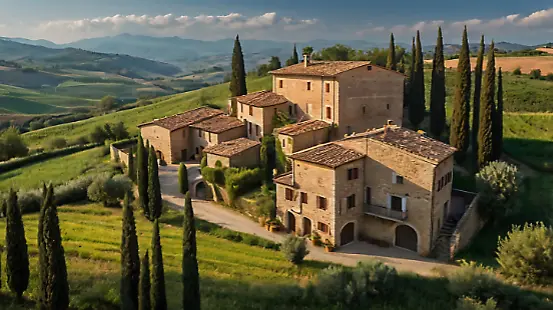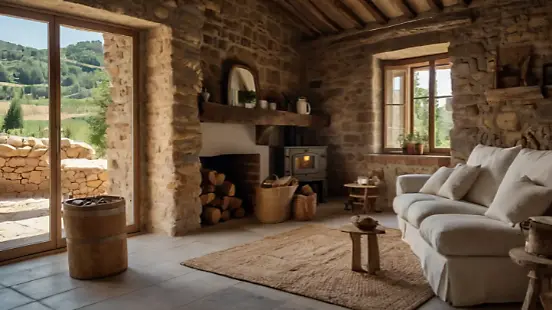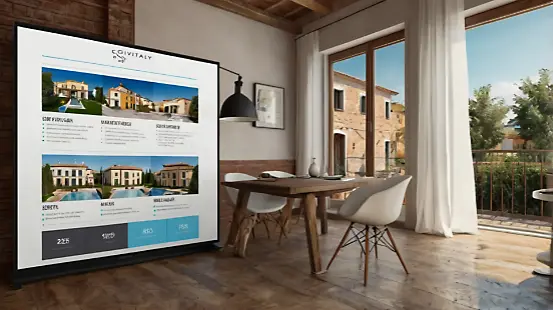Investing in Italy: The Ultimate Guide to Buying Property

Italy, with its rich history, stunning landscapes, and vibrant culture, has long been a dream destination for many. Beyond its tourist appeal, Italy also offers enticing opportunities for property investment. Whether you’re drawn to the rustic charm of Tuscany, the bustling life of Rome, or the coastal beauty of the Amalfi Coast, buying property in Italy can be a rewarding venture. This guide will walk you through the essential steps and considerations for investing in Italian real estate.
1. Understanding the Market
Current Trends
The Italian property market has shown resilience and adaptability, with certain areas experiencing steady growth. Key cities like Milan and Rome continue to attract investors due to their economic activity and cultural significance. Meanwhile, regions like Tuscany, Umbria, and Puglia offer more affordable options with high potential for appreciation, especially in the countryside and coastal areas.
Property Types
- Apartments: Popular in cities, offering convenience and accessibility.
- Villas: Ideal for those seeking luxury and space, often found in scenic locations.
- Farmhouses: Perfect for a rustic, countryside experience, many with renovation potential.
- Historic Properties: Italy’s rich history means there are many buildings with unique architectural features.
2. Legal Considerations
Residency and Non-EU Buyers
Non-EU citizens can buy property in Italy, but understanding the nuances of residency and tax implications is crucial. While owning property doesn’t automatically grant residency, it can support your application for long-term stays or residency permits.
The Purchase Process
- Property Search: Work with a local real estate agent to find properties that match your criteria.
- Offer and Negotiation: Once you find a property, you’ll make an offer. Negotiations are common and can be handled by your agent.
- Preliminary Contract (Compromesso): This contract outlines the terms of the sale and usually involves a deposit of 10-20% of the purchase price.
- Final Contract (Rogito): Signed in the presence of a notary, this document finalizes the sale. Ensure all legal checks and property inspections are completed before this step.
Taxes and Fees
- Purchase Taxes: Vary depending on whether the property is a primary residence or a second home. For non-residents, the rate is usually higher.
- Notary Fees: Typically 1-2% of the property price.
- Agent Fees: Usually around 3-6% of the purchase price, shared between buyer and seller.
- Ongoing Costs: Include property taxes (IMU), utilities, and maintenance.
3. Financing Your Purchase
Mortgages
Italian banks offer mortgages to non-residents, though the terms and conditions can vary. Typically, banks may finance up to 60-70% of the property’s value for non-residents. Having a good credit history and proof of stable income will facilitate the mortgage approval process.
Currency Exchange
Given that property transactions will be in Euros, it’s important to consider currency exchange rates and possibly work with a foreign exchange specialist to manage your funds effectively.
4. Renovation and Restoration
Building Regulations
Italy has strict regulations regarding building and renovation, especially for historic properties. Ensure you understand these regulations and obtain the necessary permits before commencing any work.
Hiring Professionals
Engage local architects, builders, and craftsmen familiar with regional styles and regulations. This will ensure the quality and authenticity of your renovations.
5. Navigating Cultural Differences
Language Barrier
While many Italians in urban areas speak English, learning basic Italian phrases or hiring a translator can help smooth communication, especially in rural regions.
Local Customs
Understanding local customs and building relationships with your neighbors can greatly enhance your experience. Italians value personal relationships and community, which can be beneficial for integrating into the local lifestyle.
6. Making the Most of Your Investment
Rental Potential
Many investors buy property in Italy with the intention of renting it out. Short-term vacation rentals, particularly in popular tourist areas, can be highly lucrative. Ensure your property complies with local rental laws and obtain the necessary licenses.
Long-Term Value
Investing in property in Italy is not just about immediate returns but also long-term appreciation. Historically, Italian real estate has been a stable investment, with some regions offering significant growth potential.
Conclusion
Investing in property in Italy can be a fulfilling and profitable venture, combining financial benefits with the joy of owning a piece of this beautiful country. By understanding the market, navigating legal and financial processes, and embracing local culture, you can make informed decisions and enjoy the many rewards of your Italian investment. Buona fortuna! (Good luck!)
Whether you’re dreaming of a holiday home, a retirement haven, or a profitable rental property, Italy offers a wealth of opportunities. Dive in with confidence, and soon you might be savoring your morning espresso on your very own Italian terrace.





